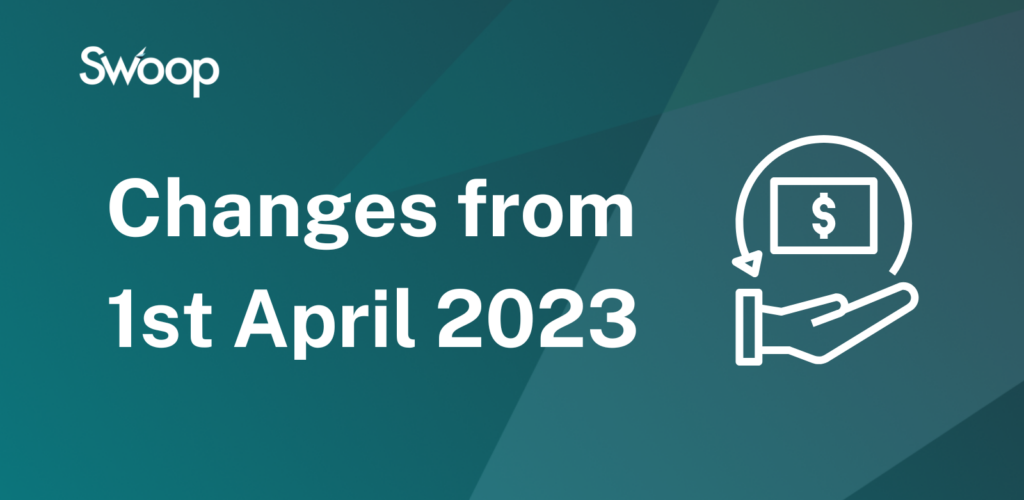The government has announced major changes to R&D tax credits, energy support, corporation tax, the super deduction scheme, annual investment allowance, and SEIS. The Swoop team and Raffingers Chartered Certified Accountants share their thoughts.
The third and final budget statement issued by Chancellor Jeremy Hunt in the autumn was intended to quieten the upheaval of the previous two statements. After a tumultuous few months, the statement was intended to draw a line and offer the country some stability with the new leadership.
After chaos, the runes landed, and where they fell has turned out to be mixed news for the nation’s SMEs. From April 2023, new rules will be in place that will have a big impact on how businesses run their finances.
SMEs need to do two things: first, they must understand what the changes are and how they will be affected by them. Secondly, they need to decide how to respond.
Below, Swoop’s team of experts sat with Raffingers Chartered Certified Accountants to take a look at what changes are coming down the line, how this will affect businesses and what you could do now to help mitigate some of the changes.
Energy update
Andrew Moon, Head of Business Solutions at Swoop
Excellent news has come in just as we are putting this together: once again, there are potential savings to be had as data shows wholesale gas prices have now fallen to levels just before Putin’s invasion of Ukraine and have almost halved since the current government support scheme was announced.
Support for business energy bills is to be cut from April 2023, as the support was intended as a temporary scheme to allow businesses to adapt to higher prices.
A discount of up to £19.61/MWh hour for electricity and £6.97/MWh for gas will be automatically applied. The discount will be applied if wholesale prices are above a price threshold of £302/MWh for electricity and £107/MWh for gas. The discount is calculated as the difference between the wholesale price associated with an energy contract and the price threshold.
As things stand, a new scheme is being introduced by the UK Government to provide help for 12 months from 1 April 2023 to 31 March 2024. Under the Energy Bills Discount Scheme (EBDS), eligible businesses, public sector organisations and charities will benefit from a per-unit discount on bills.
You can find out more here.
What should you do right now? Andrew suggests the first thing you should do is ensure you’re getting the best deal for your business. Click here, upload your bill and we’ll check for you.
R&D tax credits
Tracey Smith, Finance Manager at Swoop
R&D tax credits have been an important item on the balance sheet for many businesses: the generous allowance for companies undertaking research has been a game changer for innovators getting new products and services out onto the market.
Changes in the system are inevitably going to be a mixed bag with some allowances cut back and other areas expanded. As ever, it pays to understand how “R&D” is defined (at Swoop, we often find businesses are engaged in it without realising – and therefore not taking advantage of the breaks) and the rules under which activities qualify for the scheme.
From April 2023, the following changes will need to be factored into your plans:
- Datasets and licencing fees will become allowable expenses
- Cloud computing will be eligible if it directly relates to R&D. This includes computing, analysing and processing of data (though servers and storage are still excluded)
- Staff time spent engaging in the above activities also allowable
- There will be restrictions on overseas spend: subcontractors will only be eligible if that third party undertakes the activity in the UK. The same rule applies to spending on agency workers and professional bodies
- RDEC – Research & Development Expenditure Credit increase from 13 percent to 20 percent
- The SME enhancement amount will decrease from 130 percent to 86 percent
- The SME tax credit rate will decrease from 14.5 percent to 10 percent
Other changes that you will need to plan for are that all claims must now be submitted digitally, endorsed by a senior officer of the company and include details of any agent advising the company need to be included in the claim.
If this is your first claim, you will also need to inform HMRC within six months of your intention to file a submission.
What can you do now to make the most of the scheme? Tracey’s top tips are:
- Look at your subcontractor spend and ensure you’re working with UK providers
- Let the HMRC know as soon as possible if you intend to claim
- Always keep accurate records of the spend including dates
Raffingers Chartered Certified Accountants added that companies who claim research and development tax credits should be aware that with both the enhancement rate being reduced from 130% to 86% and the tax credit rate (cash refund rate rather than offset against your corporation tax) reducing from 14% to 10% – it’s well worth making sure your claim this year is submitted and includes all those R&D costs.
Changes to Seed Enterprise Investment Scheme (SEIS)
Kerry Dwyer, Equity Account Manager at Swoop
This scheme gives tax relief to investors who back early-stage UK startups, giving them a 50% tax relief as well as a CGT exemption on the profit from these investments.
Naturally this reduces the risk of investing in early stage, high growth businesses, making them more attractive and increasing growth and innovation as a result.
Changes kicking in on 1st April 2023 to this scheme are good news all round. A summary of the changes are:
- The amount companies can raise through SEIS will increase by two-thirds to £250k, previously £150k.
- The amount an investor can invest is being doubled to £200k.
- The age limit for companies accessing SEIS will increase from two to three years.
- The gross asset limit (all the assets on a startup’s balance sheet) will be upped to £350k.
There is always a lot of activity with SEIS investments leading up to April as investors look to invest before the end of the fiscal year. Businesses considering raising funds under this scheme should look to get themselves approved with Advanced Assurance and ensure they’re investor ready. Find out more about the scheme here.
Super deduction allowance
April 2023 sees the end of the ‘super deduction allowance’ which has allowed companies to claim a 130 percent deduction against qualifying expenditure.
Raffingers Chartered Certified Accountants suggest that companies considering a schedule of capital expenditure consider bringing forward this expenditure which could result in significant tax savings.
Annual investment allowance (AIA)
The AIA amount has changed several times over the past decade and was temporarily increased to £1 million from January 2019, but was due to revert back to its level of £200,000 after March 2023.
However, to support businesses to invest and grow, the government has now set the AIA at its highest ever permanent level of £1 million from 1 April 2023. This is excellent news and will help businesses investing in plant and machinery, enabling them to make a full tax deduction for qualifying capital expenditure.
Tax Changes
Sam Tasker-Grindley, Head of Swoop for Advisors working with Raffingers Chartered Certified Accountants
Corporation Tax
Corporation tax will increase to 25 percent from 1 April 2023 affecting companies with profits of £250,000 and over. The legislation that provided for this increase also sets out that small companies with profits up to £50,000 will continue to pay corporation tax at 19 percent, with profits between these two figures being subject to a tapered rate.
Income Tax and dividend allowance
The biggest change announced in the Autumn Statement was the reduction of the additional-rate income tax threshold, dropping from £150,000 to £125,140 from 6 April 2023. It’s estimated around 250,000 taxpayers will be pushed into this higher tax band, paying 45 percent tax on any income above the new limit.
From 6 April, the dividend allowance will also be cut from £2,000 to £1,000. From April 2024, it will be reduced to £500.
Capital Gains Tax
Capital gains tax (CGT) is charged on the profits you make from selling an asset, such as a second property or valuable possession. The tax-free allowance is currently £12,300, but from April this will be dramatically cut to £6,000. From April 2024, it will be reduced again to just £3,000.
Raffingers Chartered Certified Accountants advice to business owners is to priortise tax planning now.
The 25% rate of corporation tax will be applicable from April 2023 and makes paying dividends at certain levels not as tax efficient as previously, especially with the new higher earnings threshold of £125,000 whereupon 45% tax will be payable. Dividend/salary structures should be reviewed early in the new year to ensure any changes are implemented from April 2023 to ensure they are as tax efficient as possible.
































 yet? Register here!
yet? Register here!